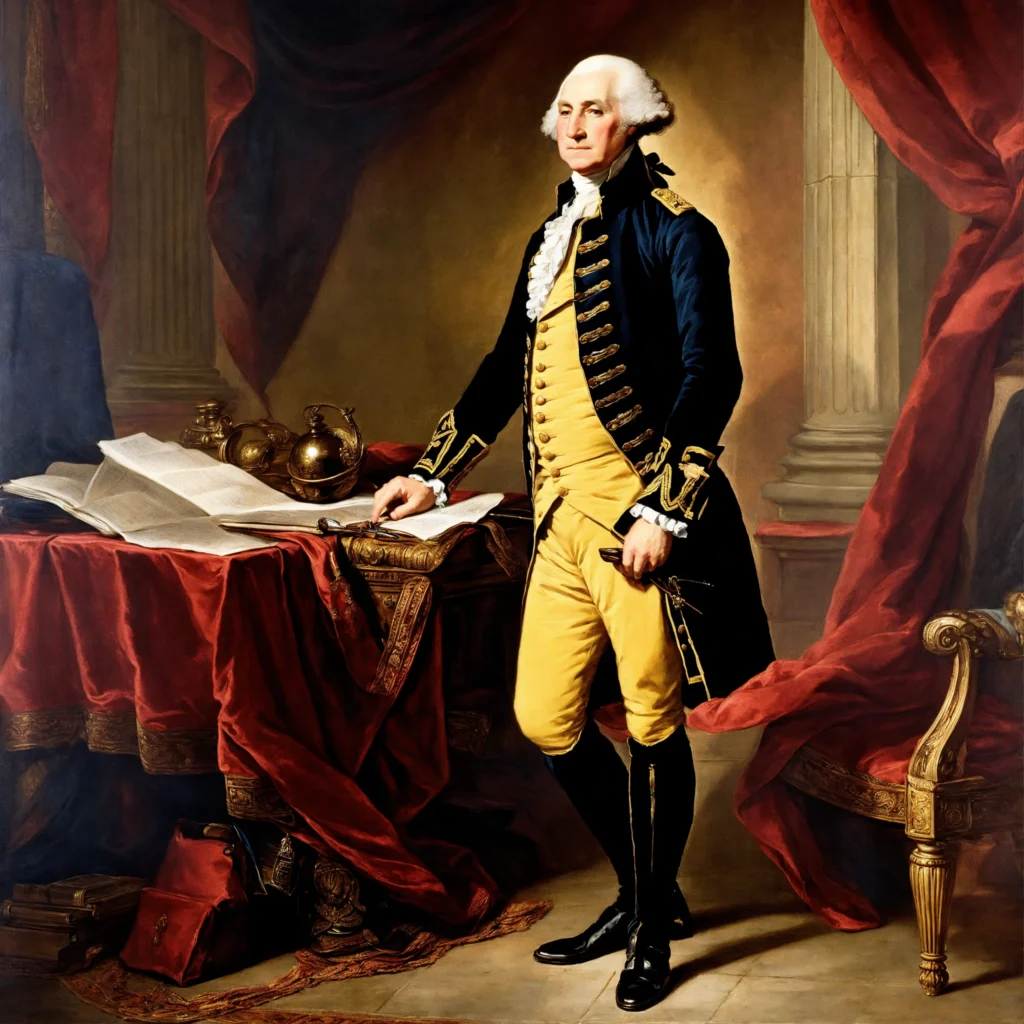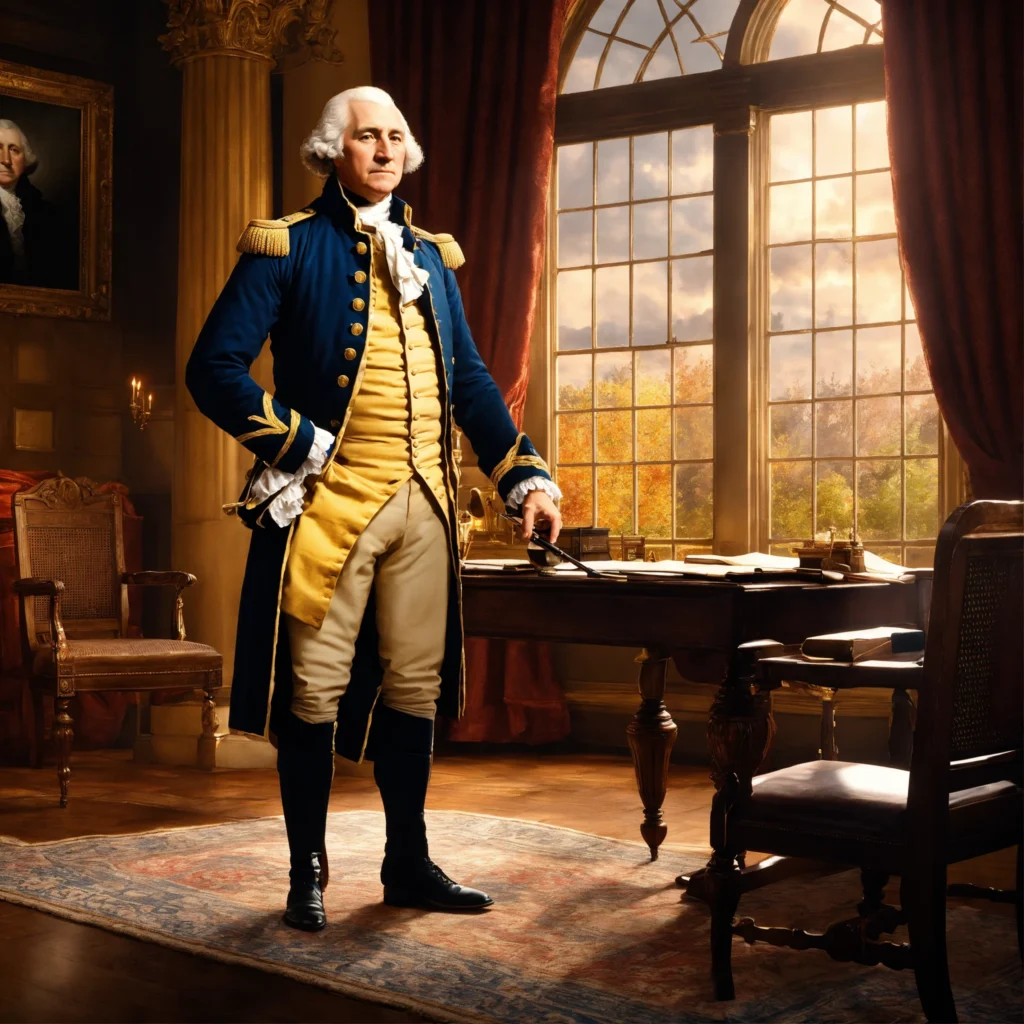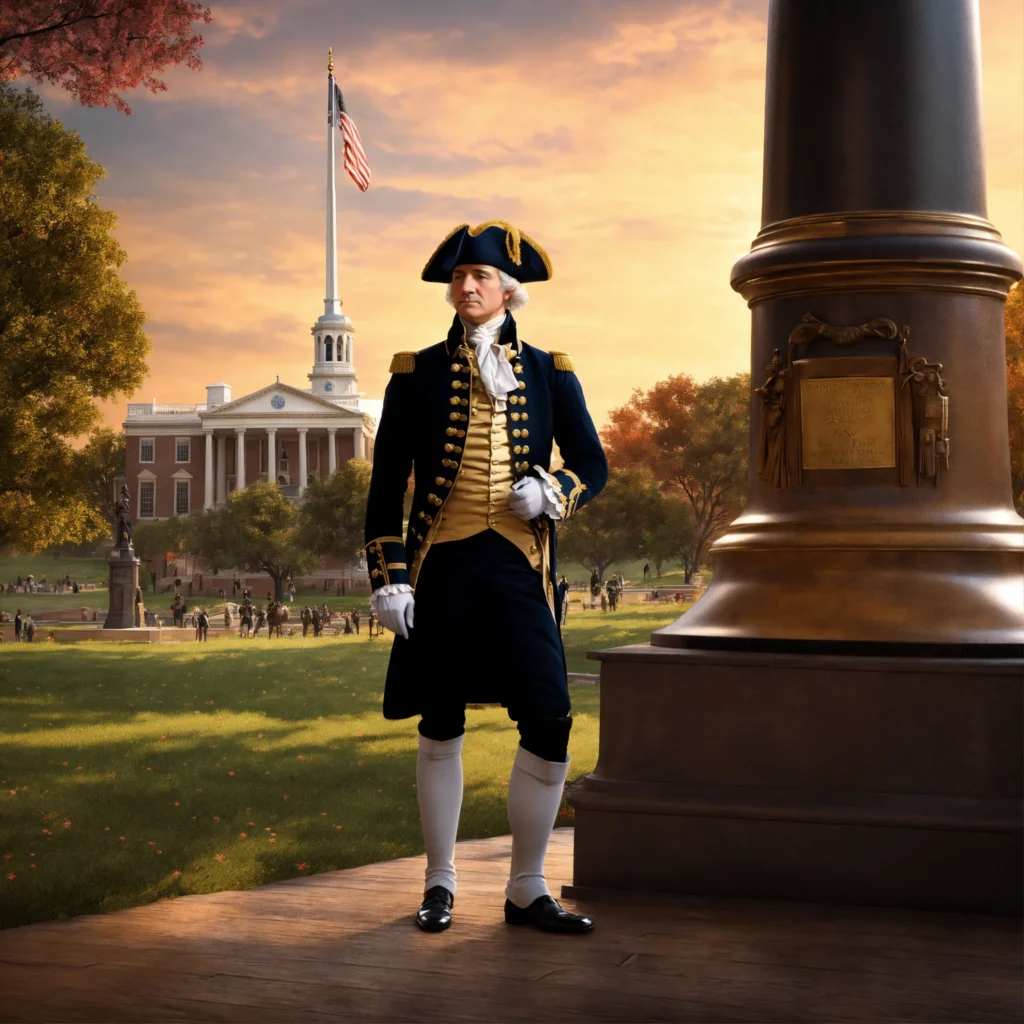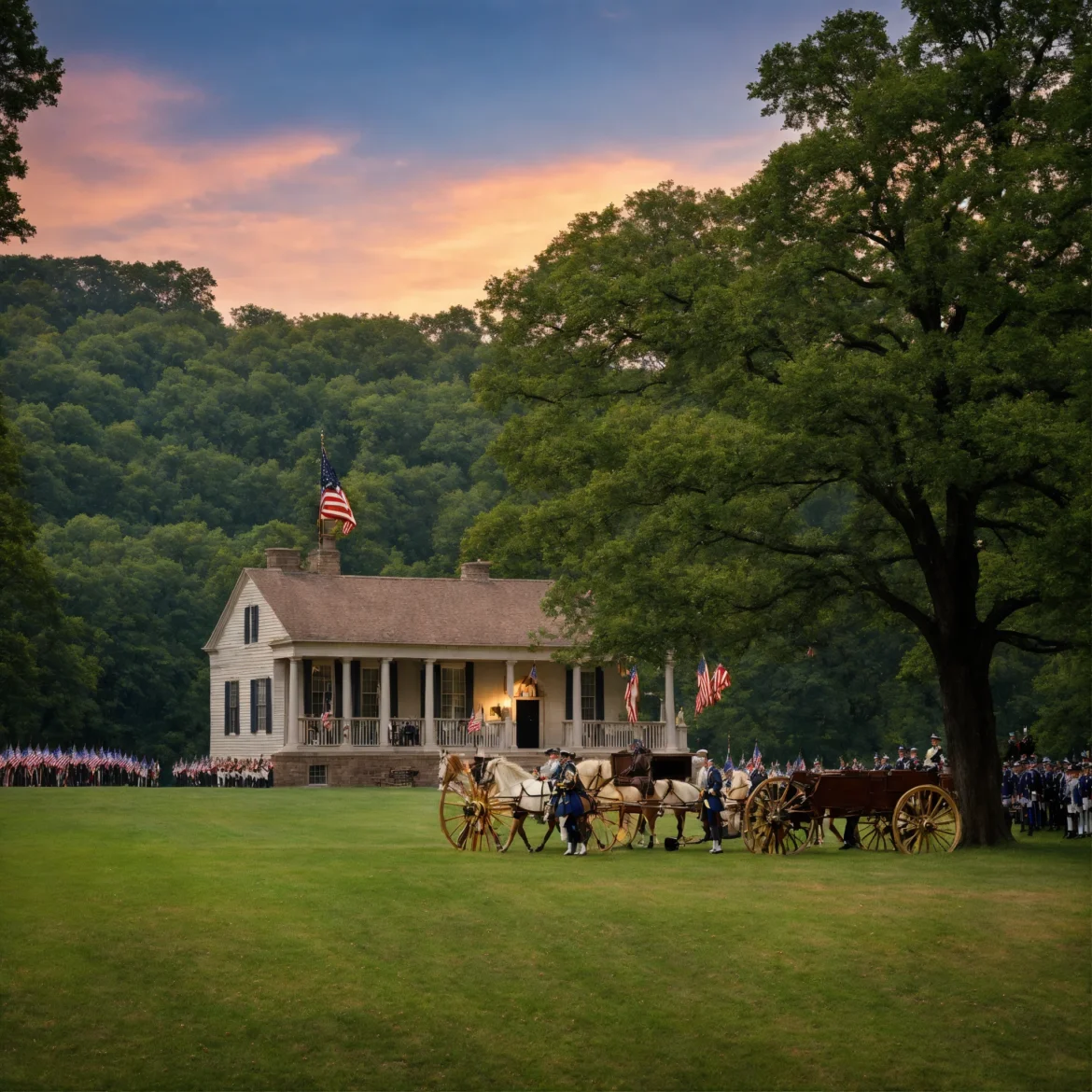


Table of Contents
The War of Independence, also known as the American Revolutionary War, was a significant conflict that took place between 1775 and 1783. It marked the struggle of the American colonies against British rule and ultimately led to the birth of the United States of America as an independent nation. At the helm of this pivotal war was a remarkable leader who played a crucial role in guiding the American forces to victory — the Commander-in-Chief.
The Commander-in-Chief during the War of Independence was none other than General George Washington. Renowned for his strategic brilliance, unwavering determination, and indomitable spirit, Washington emerged as a central figure in American history, revered as the father of the nation. As the Commander-in-Chief, he skillfully led the Continental Army, inspiring his troops and rallying the American people in their fight for freedom.
George Washington’s appointment as the Commander-in-Chief came in 1775, just as the conflict between the American colonies and the British Empire escalated into a full-fledged war. His leadership qualities and military experience gained during the French and Indian War made him a natural choice for this critical position. Washington’s unwavering commitment to the cause of independence, coupled with his ability to inspire and motivate his troops, played a pivotal role in shaping the outcome of the war.
Under Washington’s command, the Continental Army faced numerous challenges, including limited resources, harsh winters, and a formidable British military. Despite these obstacles, Washington’s strategic brilliance and tactical acumen allowed the American forces to achieve significant victories, such as the Battle of Trenton and the Battle of Yorktown. His leadership not only boosted the morale of his troops but also garnered support from European allies, most notably France, which proved instrumental in securing the ultimate victory.
Beyond his military accomplishments, George Washington’s role as the Commander-in-Chief during the War of Independence had a profound impact on the formation of the United States as a democratic nation. His leadership set a precedent for civilian control over the military, emphasizing the importance of civilian leadership and the preservation of democratic values. Washington’s voluntary resignation as Commander-in-Chief at the end of the war further solidified the principle of peaceful transfer of power, a cornerstone of American democracy.
In conclusion, the Commander-in-Chief during the War of Independence, General George Washington, played a pivotal role in guiding the American colonies to victory and securing their independence from British rule. His strategic brilliance, unwavering commitment, and leadership qualities were instrumental in shaping the outcome of the war. Moreover, Washington’s legacy as the father of the nation and his emphasis on democratic values continue to resonate in the United States to this day.
The Commander-in-Chief during the War of Independence
The War of Independence, a pivotal moment in American history, saw the American colonies rise up against British rule in a bid for freedom and self-governance. At the forefront of this historic conflict stood General George Washington, the esteemed Commander-in-Chief of the Continental Army. His leadership and strategic prowess were instrumental in shaping the outcome of the war and establishing the United States as an independent nation.
George Washington: A Natural Leader
George Washington’s rise to the position of Commander-in-Chief was not a mere coincidence. His leadership qualities and military experience made him a natural choice for this crucial role. Washington had gained valuable experience during the French and Indian War, where he demonstrated his bravery and tactical acumen. This experience, coupled with his unwavering commitment to the cause of independence, set the stage for his pivotal role in the American Revolutionary War.
Leading the Continental Army
As the Commander-in-Chief, Washington faced numerous challenges in leading the Continental Army. The American forces were often outmatched in terms of resources and military strength, with the powerful British Empire standing as their formidable adversary. However, Washington’s strategic brilliance and ability to inspire his troops proved to be invaluable assets.
One of the most iconic moments in Washington’s military career came during the harsh winter of 1777-1778, when the Continental Army faced a series of setbacks. Despite the difficult circumstances, Washington’s leadership shone through as he led his troops to a surprise victory at the Battle of Trenton. This crucial win not only boosted morale among the American forces but also demonstrated Washington’s ability to adapt and strategize effectively.
Foreign Support and Victories
Washington’s leadership extended beyond the battlefield. He understood the importance of securing foreign support to bolster the American cause. Through diplomatic efforts, Washington was able to garner support from European allies, most notably France. The alliance with France proved instrumental in securing crucial victories, such as the Battle of Yorktown in 1781, which ultimately led to the British surrender and the end of the war.
Washington’s ability to forge alliances and maintain the support of his troops and the American people played a vital role in the success of the American Revolution. His leadership and strategic decisions not only secured military victories but also paved the way for the formation of the United States as an independent nation.
Conclusion
In conclusion, General George Washington’s role as the Commander-in-Chief during the War of Independence was of paramount importance in the fight for American independence. His natural leadership qualities, strategic brilliance, and ability to inspire his troops were instrumental in shaping the outcome of the war. Washington’s legacy as the father of the nation and his emphasis on democratic values continue to resonate in the United States today. The United States owes a great debt to George Washington for his leadership and contributions during this transformative period in its history.
Practical Recommendations
Educate on the Importance of Leadership
One of the key takeaways from George Washington’s role as Commander-in-Chief during the War of Independence is the significance of strong leadership. It is crucial to educate individuals, particularly those in positions of authority, about the qualities and skills required for effective leadership. Leadership training programs, workshops, and seminars can be organized to develop and enhance leadership abilities, emphasizing traits such as strategic thinking, adaptability, and inspiration.
Emphasize the Value of Strategic Thinking
Strategic thinking played a vital role in Washington’s success as a military leader. Organizations and individuals can benefit from adopting a strategic mindset in their decision-making processes. Encouraging individuals to think critically, anticipate challenges, and develop long-term plans can lead to more effective outcomes. Strategic thinking workshops and training sessions can be organized to foster this skill set among employees and individuals alike.
Promote the Importance of Diplomacy and Alliances
Washington’s ability to secure foreign support and alliances was crucial to the success of the American Revolution. This highlights the significance of diplomacy and building strong relationships with allies. Governments, organizations, and individuals should prioritize diplomatic efforts, fostering international relationships based on mutual respect and shared values. Encouraging cultural exchanges, diplomatic training programs, and international collaborations can help promote peaceful cooperation and support in times of need.
Highlight the Significance of Democratic Values
George Washington’s emphasis on democratic values, including civilian control over the military and the peaceful transfer of power, remains relevant today. It is essential to educate individuals about the importance of democratic principles and their role in fostering a just and inclusive society. Schools, universities, and community organizations can organize workshops, seminars, and discussions to raise awareness about democratic values, promoting active citizenship and civic engagement.
Recognize and Celebrate Leadership Excellence
To inspire future leaders, it is crucial to recognize and celebrate leadership excellence. Establishing awards, scholarships, or leadership programs that honor individuals who exemplify the qualities of exceptional leadership can encourage others to strive for greatness. Recognizing and promoting leadership excellence not only acknowledges the contributions of deserving individuals but also motivates others to develop their own leadership abilities.
Incorporating these practical recommendations into various aspects of society can help cultivate effective leaders, foster strategic thinking, promote diplomatic efforts, uphold democratic values, and inspire future generations to make a positive impact in their communities and beyond. By learning from the remarkable leadership of George Washington during the War of Independence, we can continue to build a better future based on the principles of freedom, democracy, and effective leadership.

